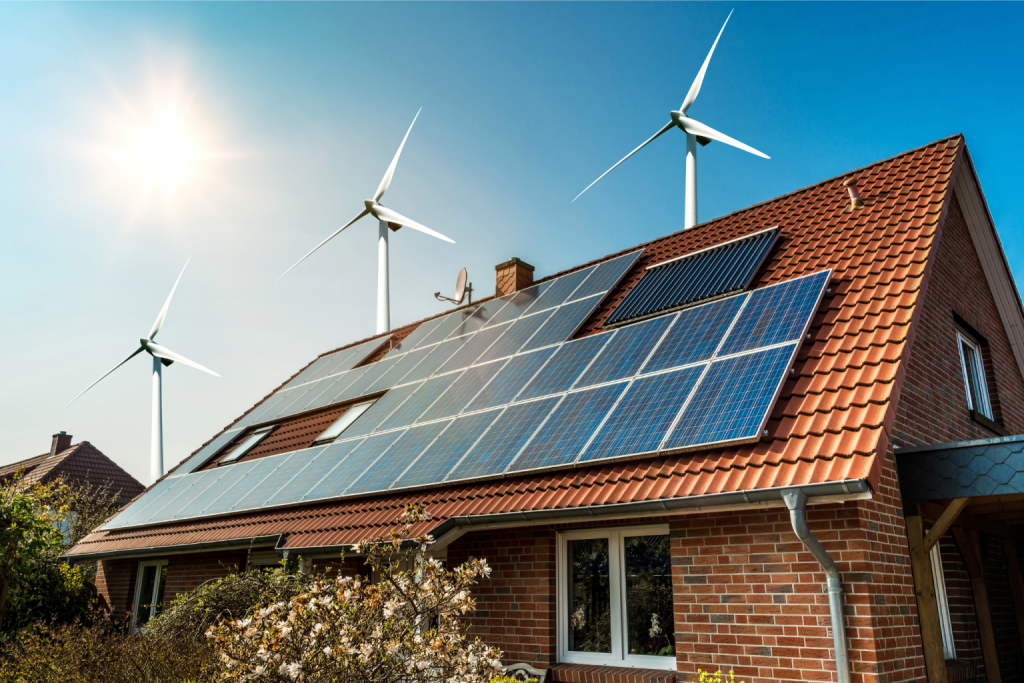Price spikes see people take charge of their electricity use
People in Estonia have begun to consciously manage their electricity consumption during periods of high prices. This has helped reduce costs and better balance energy supply and demand. However, the potential for managing electricity consumption in Estonia is double that which is currently being seen, and its full implementation would require the amendment of legislation.

Märt Masso, an expert from the Foresight Centre, notes that the most active responses to spikes in electricity prices come from manufacturing companies and regular households, particularly those with heat-pump systems. “When the electricity stock price surpassed 1000 EUR/MWh this January, regular households and manufacturing companies reduced their consumption by an average of 10-12%,” he said. “However, there is much more potential for managing consumption. For example, regular households generating solar energy reduced their consumption by 2.5 times more than households purchasing electricity at the stock price.”
An analysis of electricity use by Enefit has revealed that consumers purchasing electricity at the stock price around Estonia reduced their total consumption by approximately 30-40 MW during periods of extreme price spikes on 5 January this year. Given Enefit’s market share, the combined reduction in electricity consumption in the country on that day alone would have been between 75-100 MW, depending on the hour.
In its recent report, the Foresight Centre underscores that although people’s awareness of and motivation and ability to reduce their costs by taking charge of their energy consumption have increased in Estonia, they have not yet reached the expected level. Additionally, consumers with fixed electricity prices have demonstrated a lack of motivation to reduce their use during price spikes. This consumption accounts for around a third of all energy consumed in Estonia. Another concerning outlier is the public sector, which unlike all other consumer groups consumed more electricity than usual during price spikes.
According to experts, boosting electricity consumption management among consumers would require establishing additional financial incentives. This would involve paying a bonus to consumers who reduce their consumption during price spikes or increase their consumption during periods of low prices.
Einari Kisel, the Head of Partnerships and Strategy at the FinEst Centre for Smart Cities, says that in order to establish an incentive system, a more specific regulation regarding joint consumer bidding or aggregation would need to be added to the Electricity Market Act. “Among other benefits, this would incentivise consumers with fixed energy prices to take charge of their consumption,” he said. “However, in creating the regulation, we would have to prevent potential new problems on the electricity market related to consumption management.”
The ‘Prospects for Electricity Consumption Management in Estonia’ report highlights that to date, the independent management of electricity consumption by consumers has only been facilitated in response to price spikes on the market. Consumption can also be managed by aggregating the consumption loads of electricity users via their service provider, which could enable the involvement of consumers with fixed electricity prices in consumption management. Currently, aggregator services are limited in Estonia due to the country’s market model and shortcomings in the relevant legal acts.
The ‘Prospects for Electricity Consumption Management in Estonia’ report forms part of the ‘Active Consumers in the Future Energy System’ research project conducted by the Foresight Centre. The analysis of demand response in Estonia was commissioned by the Foresight Centre and conducted by the FinEst Centre for Smart Cities, operating under Tallinn University of Technology (TalTech), and the university’s Department of Electrical Power Engineering and Mechatronics.
Latest news
-
27.06 2025Current low birth rate will lead to up to 1.3 billion euros less tax revenue in the future
In its new short report “The impact of population ageing and low birth rate on long-term state revenue and expenditure”, the Foresight Centre notes that the lower than projected birth rate will reduce government spending on family policy and education, but in the long term, it will mean up to 1.3 billion euros less in tax revenue.

 An independent think tank at the Riigikogu
An independent think tank at the Riigikogu 